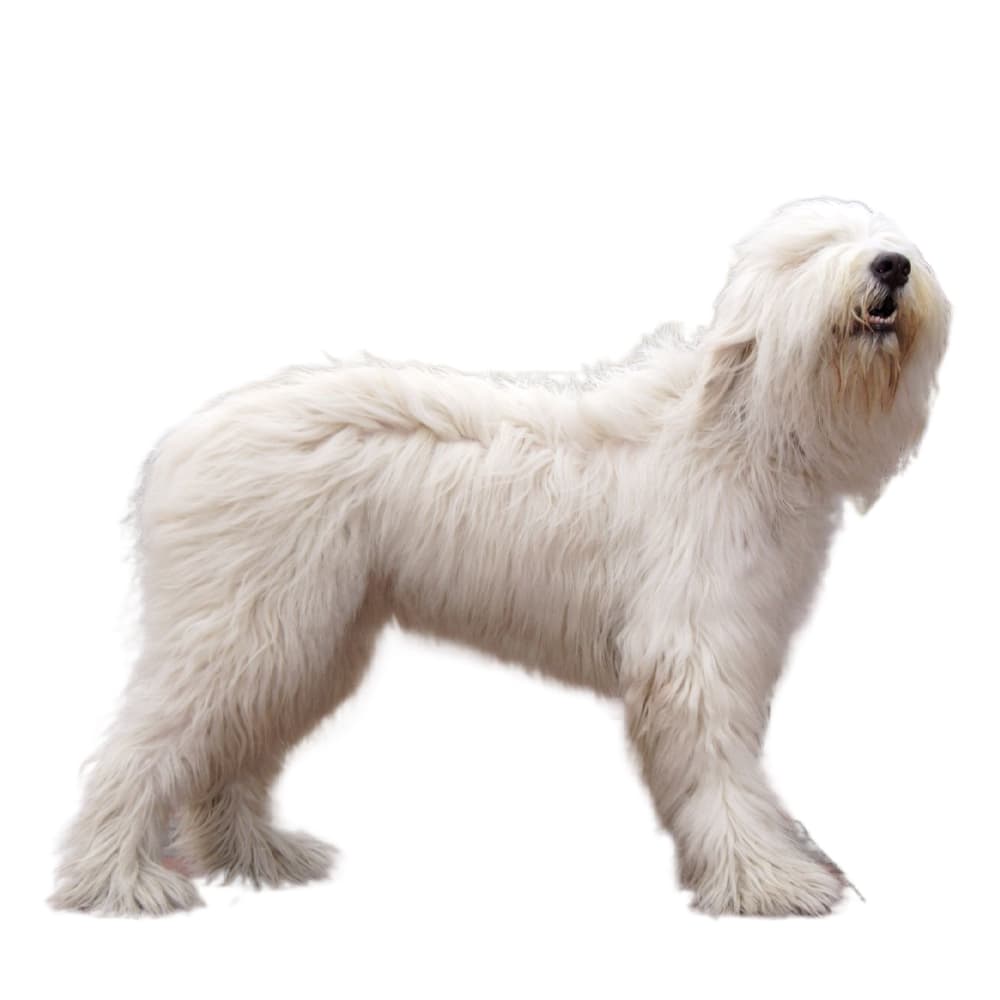Discover your dog's connection to this breed and 200+ others


Discover your dog's connection to this breed and 200+ others



The South Russian Ovcharka, also known as the South Russian Shepherd Dog or the Ukrainian Shepherd Dog, originates from the steppes between the Black Sea and the Sea of Azov in what is now Ukraine. It was bred to be a herding and guard dog for the local sheep, surviving harsh weather and deterring predators such as wolves. Historically, these dogs were kept by various nomadic groups such as the Tatars, and later by Ukrainian and Russian shepherds. They are believed to have descended from a mix of native sheepdogs and hounds brought to the area by migrants from Central Asia and the Middle East around 2000-3000 years ago. The breed has been recognized since at least the 18th century, but it wasn't officially named and standardized until the 20th century.
South Russian Ovcharkas are known to be generally healthy dogs, but as a larger breed they are at risk for developing orthopedic problems, such as hip and elbow dysplasia. As a deep-chested breed, they can be susceptible to bloat, also known as gastric dilation volvulus (GDV). This is a life-threatening condition that can come on suddenly, so it’s important to know the warning signs and get an affected dog immediate veterinary care. Genetic testing is recommended, including for the following specific conditions: hyperuricosoria, degenerative myelopathy, and progressive rod-cone degeneration.
The South Russian Ovcharka is known for being independent, confident, and somewhat aloof. They are very protective of their family and territory, making them excellent guard dogs. However, they can also be stubborn and challenging to train, and they require an experienced owner who can provide consistent, firm, but kind guidance. They are typically not well-suited to city or apartment living due to their size and exercise needs, and they do best in a home with a large, securely fenced yard where they can roam and patrol.
The South Russian Ovcharka is sometimes called the "Russian Bear Dog" due to their large size and impressive strength.
Despite their thick coat, these dogs are very resistant to heat as well as cold, thanks to the insulating properties of their double coat.
This breed is known for their agility and endurance, with a history of running alongside the flocks they guarded, often covering great distances daily.
https://vgl.ucdavis.edu/breed/south-russian-ovcharka
https://www.ukcdogs.com/south-russian-shepherd-dog
https://wagwalking.com/breed/south-russian-ovcharka
https://www.fci.be/en/nomenclature/SOUTH-RUSSIAN-SHEPHERD-DOG-326.html
https://www.ukcdogs.com/south-russian-shepherd-dog
Recommended by top vets with decades of experience
21 breeds
64 genetic health markers
50 genetic trait markers
